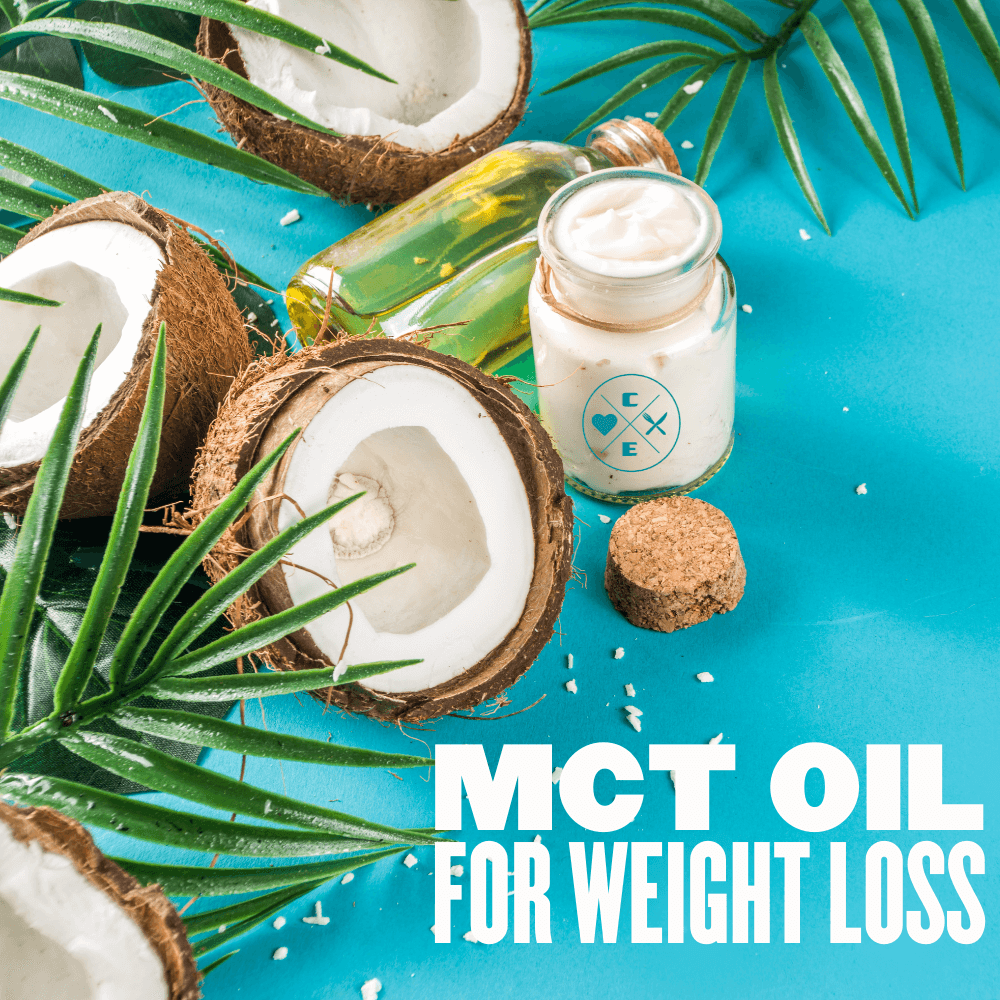
How to Use MCT Oil for Weight Loss
Jason Nista
Weight Loss
7 minute read
How to use MCT oil for weight loss? Fat that is ingested through our meals goes through a digestion process that requires it to be bound to lipoproteins, enter the lymphatic system, and then to our bloodstream. However, Medium chain triglycerides (MCTs) are a special kind of fat that goes directly to the portal vein and from there to the liver without going through the normal fat absorption and digestion process,
Aid with weight loss, healthier levels of LDL, boosting metabolism, keeping you satiated for a longer time, and others. Today we will look at the research and identify the potential benefits and risks of including MCTs in your daily nutrition and if they live up to all the hype.
Discover more about these points by following the article:
- What are MCT oils?
- MCT oils and appetite
- MCT oils for weight loss
- Bulletproofing your coffee?
What Are MCT Oils
As mentioned above MCT oils are a special kind of fat that have a shorter molecular structure than many of the other fats we eat with longer molecular structures, like olive oil and nuts. These MCTs include butter and tropical oils like palm or the most known of all: coconut oil.
Due to their shorter length chains, these are absorbed differently in the body and can travel straight from the intestine to the liver because of their smaller size bypassing the lymphatic system. This allows them to be transformed into energy by the liver faster and potentially cause satiety earlier, allowing us to feel fuller sooner and thus consume fewer calories overall. This could potentially have a positive effect on weight loss in the long term if you start to use it in your weight loss meal delivery plan.
MCT Oils And Appetite
Some claims have been made that due to it being absorbed and metabolized faster for energy, MCT oils can allow us to feel fuller faster and reduce the amount of food we consume overall. This would lead to a caloric deficit without feeling hunger and eventually to weight loss.
However, out of 7 studies, only 1 showed to have this satiating effect on test subjects so it may seem that this claim has not a scientific backup.
Nevertheless, more studies are needed since some of the results are mixed: the above-mentioned studies have other interesting findings like a decrease in body mass of individuals in six of them, and four showed an increase in energy expenditure. S there might be some link to weight loss after all.
MCT Oils For Weight Loss
So how to use MCT oil for weight loss? There are some studies that show a minor relation between intake of MCT oils and weight loss, decrease in body fat, fat oxidation, and decrease in total cholesterol the results are not conclusive and are not consistent in all of the research, further studies in humans are needed to determine the real effectiveness and safety of MCTs as a supplement or dietary replacement.
However, there are some interesting points that are common to most studies. The most important one to note is that such beneficial effects in weight loss and health are only apparent in isocaloric diets, that is when the intake of MCTs is in substitution for other forms of fat and longer chain triglycerides, like olive and other vegetable oils, and not when added to dietary intake as a supplement, which may cause an increase in daily fat consumption and the correspondent increased caloric intake.
This shows that the most important factor of weight loss is still maintaining a caloric deficit that allows a healthy reduction of body fat combined with other healthy habits like daily physical activity and appropriate sleep and recovery.
Bulletproofing Your Coffee?
Another common and very popular trend is the addition of fats to the morning coffee in the form of butter and MCT oils, like coconut oil. It has gained a lot of attention in recent years with the same general claims as supplementation with MCT oils.
This idea is not modern by any means as is a common Ethiopian practice to add butter to the coffee, or from the Mongolians who consume yak butter tea.
However, it has not been shown that there are any inherent benefits of this practice over consuming your daily fats in your meals or consuming MCTs at other times of the day. It can, on the other side, lead to an increase in daily caloric intake of more than 300 kcal (in a 250 ml cup) which can, in turn, lead to weight gain if not controlled and made up for in the rest of the day.
When it comes to foods that promote heart health, it might have the added risks of increased saturated fat consumption from the butter, like changes in blood lipids with an increase in triglycerides and HDL, and an increase in the risk of cardiac disease.
Final Thoughts
There are a few key points to take into consideration if you’re interested in adding MCT oils to your daily nutrition:
-
MCTs appear to benefit fat loss to a minor extent when consumed in place of other dietary fat. However, studies are not conclusive and have mixed results for all of the health claims.
-
Being extra careful in controlling daily caloric intake is mandatory to avoid overconsumption of MCTs or any other form of fat and supplements. For example, if consuming a morning “bulletproof coffee” calories and fat intake for the remainder of the day should be controlled to allow the caloric deficit that promotes weight loss or at least doesn’t cause unhealthy weight gain.
-
The final decision comes to you but you should always keep a critical view of how your body reacts to any specific changes in your diet and be ready to discard and change what doesn’t help you achieve the expected results.
-
Always consult and work with your main health provider to make sure the changes you make to your lifestyle are safe and aligned with your goals.
FAQ
What is The Best MCT Oil for Weight Loss?
Determining the "best" MCT oil for weight loss can depend on individual preferences and needs. However, there are a few factors to consider when choosing an MCT oil: Quality and Source, Extraction Method, Taste and Odor, Reviews, and Reputation.
How Much MCT Oil Should I Consume For Weight Loss?
The recommended dosage of MCT oil for weight loss varies depending on the individual and their tolerance. It is generally recommended to start with 1 teaspoon to 1 tablespoon per day and gradually increase the dosage over time. It is important to listen to your body and adjust the amount accordingly. Consulting with a healthcare professional or a registered dietitian can also provide personalized guidance.
Are There Any Side Effects of Using MCT Oil For Weight Loss?
MCT oil is considered safe for most people when consumed in moderate amounts. However, some individuals may experience digestive issues such as diarrhea, stomach cramps, or nausea when consuming excessive amounts of MCT oil. Starting with a small dosage and gradually increasing it can help minimize these side effects. If you have any underlying health conditions or concerns, it's best to consult with a healthcare professional before incorporating MCT oil into your diet.
Can MCT Oil be Used As a Meal Replacement For Weight Loss?
While MCT oil can provide a source of energy and contribute to satiety, it should not be used as a complete meal replacement for weight loss. MCT oil lacks essential nutrients like protein, vitamins, and minerals that are necessary for overall health. It is best to use MCT oil as a supplement alongside a well-balanced diet that includes a variety of whole foods.
Related Articles
Which Are The Most Effective Vitamins for Weight Loss?
9 minute read
Is Coffee Good For Weight Loss?
8 minute read
How to Avoid Loose Skin After Weight Loss?
7 minute read



